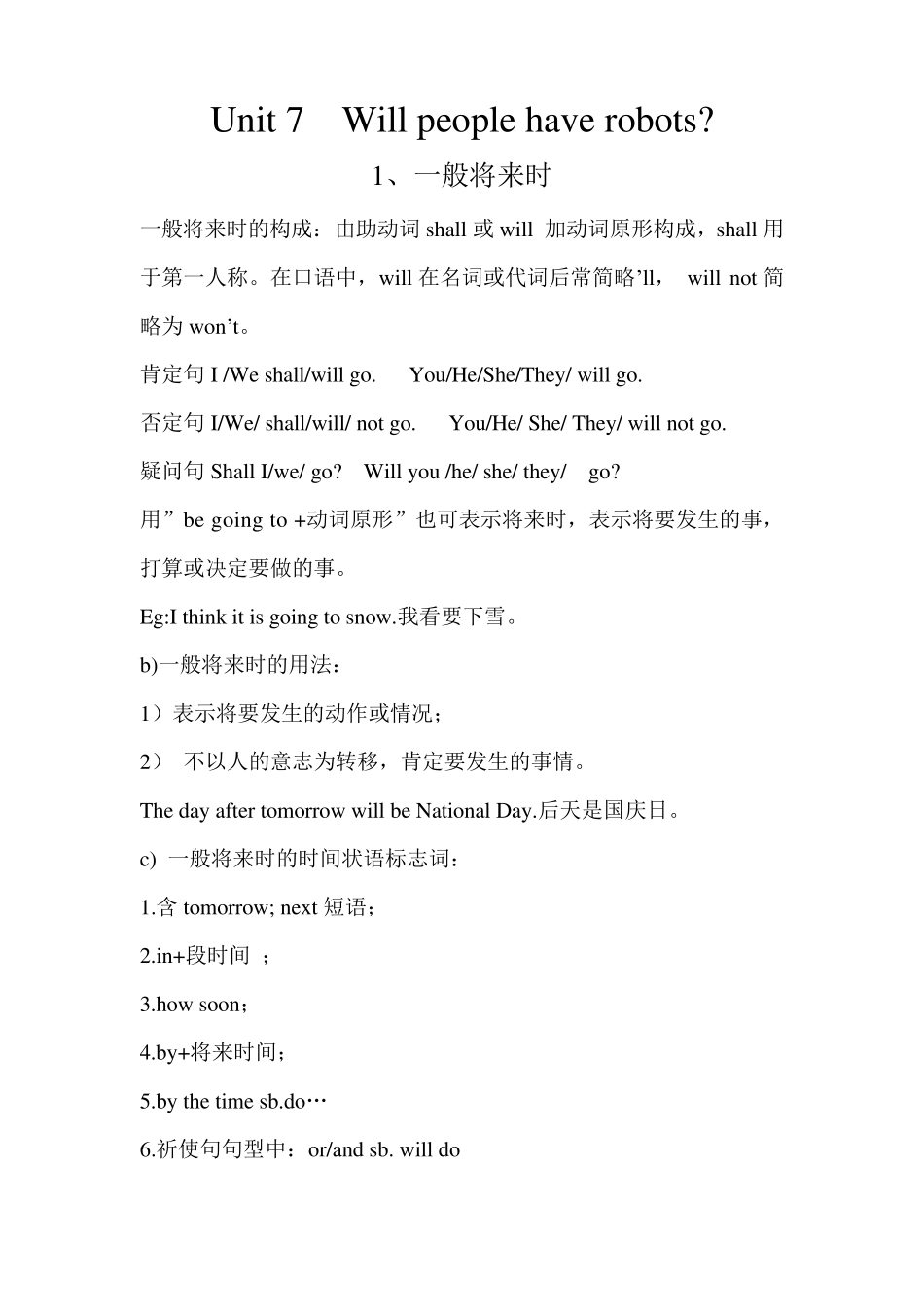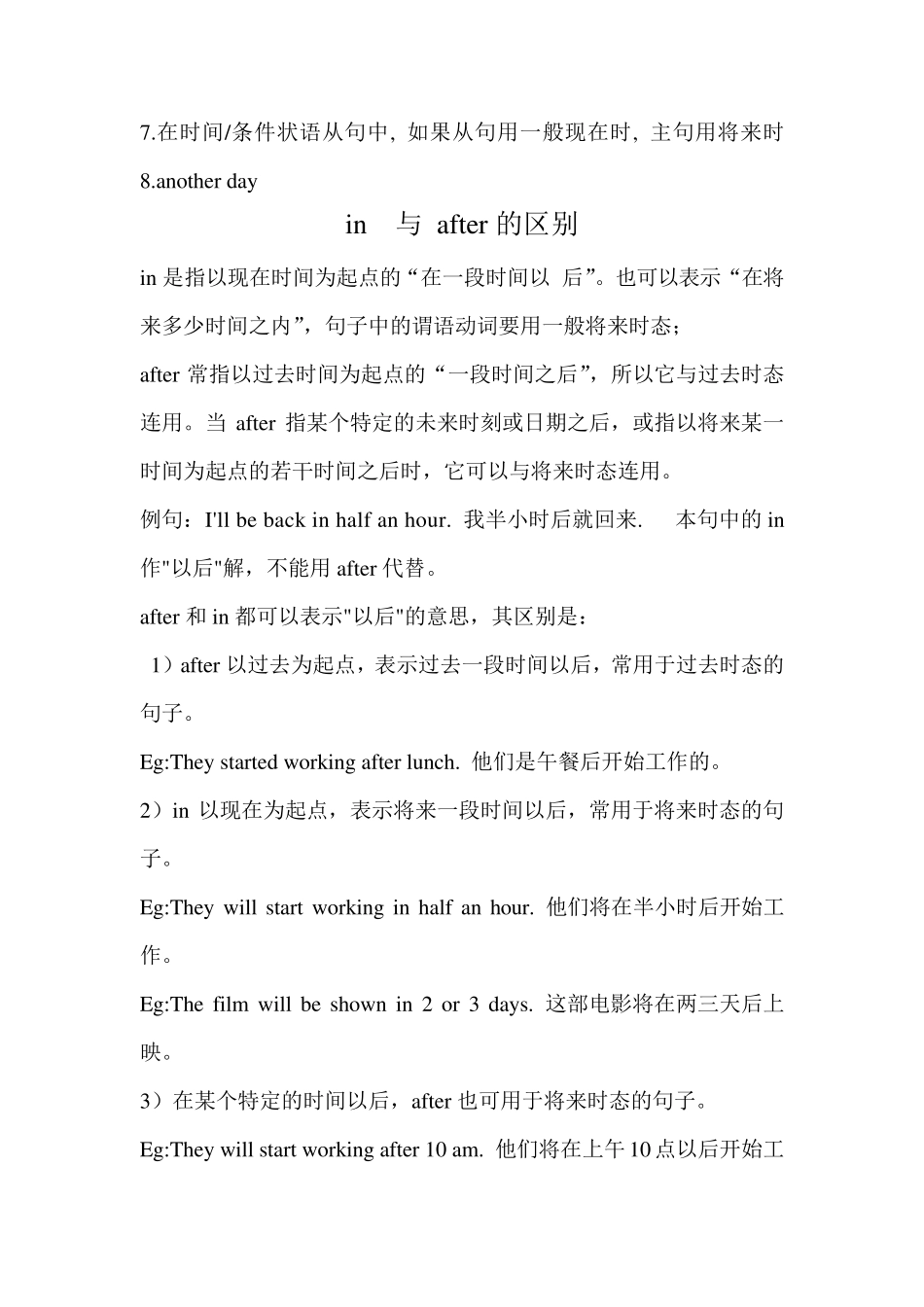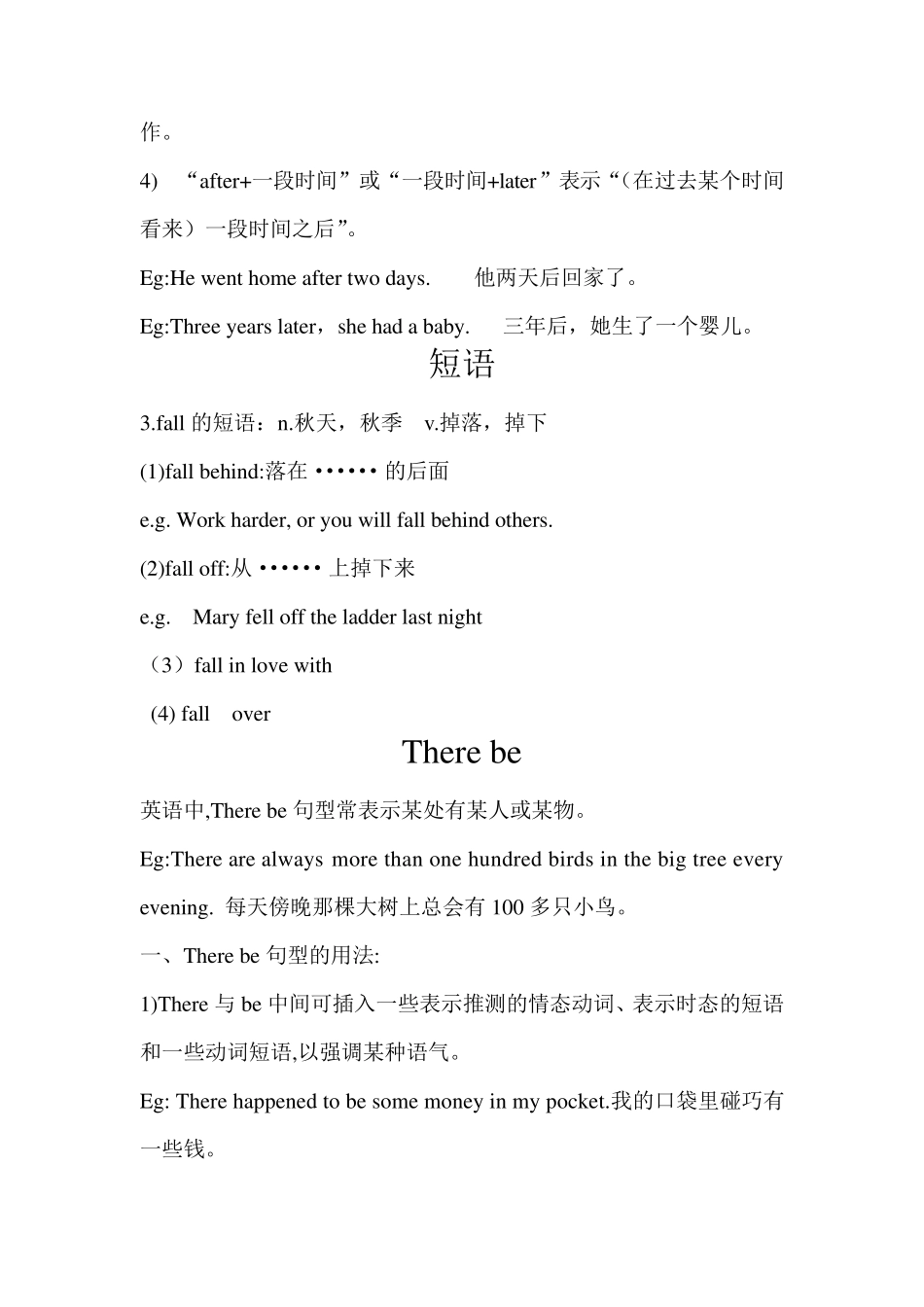Unit 7 Will people have robots? 1、一般将来时 一般将来时的构成:由助动词shall 或will 加动词原形构成,shall 用于第一人称。在口语中,will 在名词或代词后常简略’ll, will not 简略为won’t。 肯定句I /We shall/will go. You/He/She/They/ will go. 否定句I/We/ shall/will/ not go. You/He/ She/ They/ will not go. 疑问句Shall I/we/ go? Will you /he/ she/ they/ go? 用”be going to +动词原形”也可表示将来时,表示将要发生的事,打算或决定要做的事。 Eg:I think it is going to snow.我看要下雪。 b)一般将来时的用法: 1)表示将要发生的动作或情况; 2) 不以人的意志为转移,肯定要发生的事情。 The day after tomorrow will be National Day.后天是国庆日。 c) 一般将来时的时间状语标志词: 1.含 tomorrow; next 短语; 2.in+段时间 ; 3.how soon; 4.by+将来时间; 5.by the time sb.do… 6.祈使句句型中:or/and sb. will do 7.在时间/条件状语从句中, 如果从句用一般现在时, 主句用将来时 8.another day in 与 after 的区别 in 是指以现在时间为起点的“在一段时间以 后”。也可以表示“在将来多少时间之内”,句子中的谓语动词要用一般将来时态; after 常指以过去时间为起点的“一段时间之后”,所以它与过去时态连用。当 after 指某个特定的未来时刻或日期之后,或指以将来某一时间为起点的若干时间之后时,它可以与将来时态连用。 例句:I'll be back in half an hour. 我半小时后就回来. 本句中的in作"以后"解,不能用after 代替。 after 和 in 都可以表示"以后"的意思,其区别是: 1)after 以过去为起点,表示过去一段时间以后,常用于过去时态的句子。 Eg:They started working after lunch. 他们是午餐后开始工作的。 2)in 以现在为起点,表示将来一段时间以后,常用于将来时态的句子。 Eg:They will start working in half an hour. 他们将在半小时后开始工作。 Eg:The film will be shown in 2 or 3 days. 这部电影将在两三天后上映。 3)在某个特定的时间以后,after 也可用于将来时态的句子。 Eg:They will start working after 10 am. 他们将在上午 10 点以后开始工作。 4) “after+一段时间”或“一段时间+later”表示“(在过去某个...


